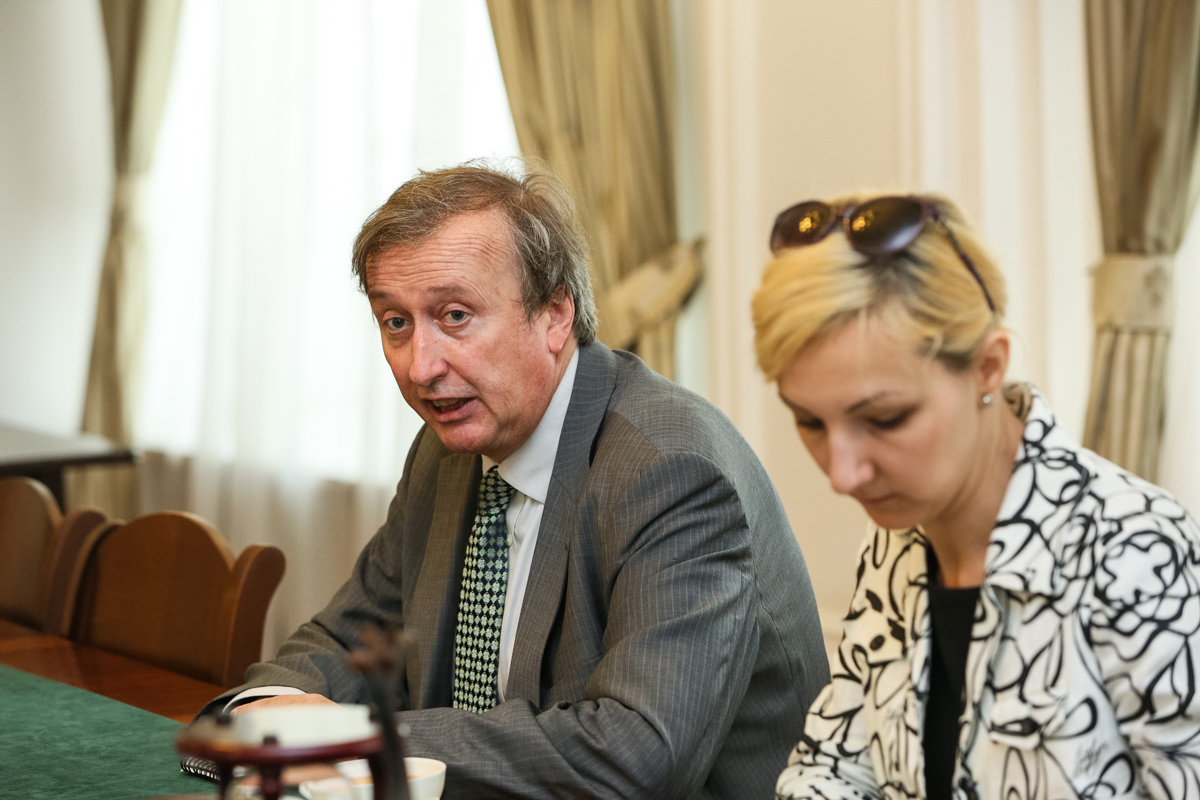The Rector of St Petersburg University has met with the Consul General of France
During the meeting, Hughes De Chavagnac, the Consul General of France in St Petersburg, discussed the development of cooperation in science and education.
The diplomat thanked the rector for the invitation and noted that work on creating programmes of two diplomas with Sorbonne University is progressing well: in September, the first students will begin to study in them. The programmes are unique in that they will be integrated with the non-degree programme 'The French University College of St Petersburg University’ in such fields of study as literature, history, and philosophy. Hughes De Chavagnac noted that only two disciplines are not included in this model of cooperation – law and sociology. The Consul General discussed the prospects for improving the interaction in law at the SPIEF-2019 with Sergei Belov, Dean of the Faculty of Law of St Petersburg University.
The university is interested in attracting French universities to cooperate in the field of law, and is already implementing such programmes with German universities.
Hughes De Chavagnac said that the University of Aix-Marseille in Provence is one of the best institutions of higher education in France in the field of law. It has also expressed its wish to take part in such a model of cooperation with St Petersburg University.
Hugo de Chavagnac reported that he had taken part in the meeting of the council of the non-degree programme ‘The French University College’ which he chairs. He thanked the Rector of St Petersburg University for the opportunity offered to him. The recent meeting with the council was meaningful and productive, and made it possible to discuss all the necessary issues. The Consul General made a proposal to invite representatives of not only those fields of study that are involved in the implementation of the academic programme, but also experts in other related areas.
Nikolay Kropachev noted that the initiative to use only ‘The French University College of St Petersburg University’ non-degree programme for communication between the University and French universities is ineffective. For example, the University’s cooperation with China used to be limited to the interaction with the Confucius Institute. At present, the Chinese component is included in every tenth university programme. The strengthening of international cooperation is promoted not so much by launching some double degree programmes, but by a systematic approach in all scientific fields, from the exchange of lecturers and students to the provision of wide access to electronic resources.
786
Works have been co-published with French colleagues by University scientists and scholars over the past five years, and 700 works with Chinese colleagues.
However, the situation may change given the recent trends. There are now 10 times less French students at the University than students from China, although in 2014 the ratio was 1:1. The number of Chinese partner universities has also increased. At present, there are 50 of them, which is 30% more than the French partners.
The rector of St Petersburg University cited the publication of the Almanac of Modern Russian Prose in Chinese as an example the whole diversity of areas of cooperation. The collection will make it possible to introduce the work of contemporary writers to the people of China (and, in the near future, of other countries). Many of these writers are university students. This will help foreigners to get to know about modern Russia. Nikolay Kropachev suggested publishing the same almanac in France.
At the end of the meeting, Nikolay Kropachev suggested concluding a direct agreement with the Ministry of Education of the French Republic to support the development of the French component in academic programmes and scientific research at St Petersburg University. The Consul General supported this initiative and announced that he will recommend that the Ministry should conclude such an agreement.



